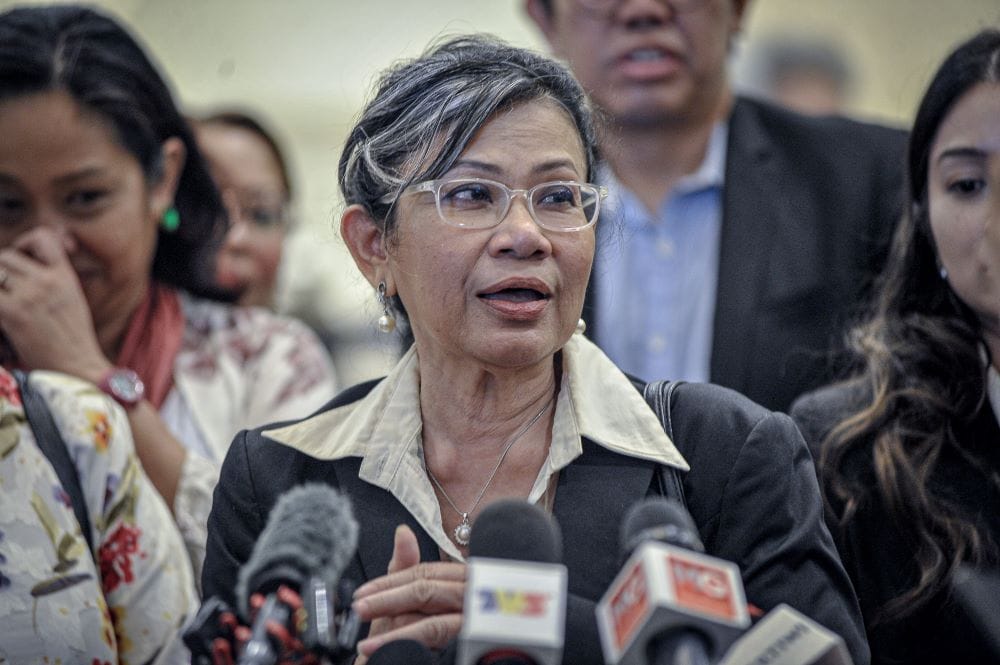Addressing politicization and ensuring public understanding post Nik Elin vs Kelantan case
In light of the Nik Elin v. Kerajaan Kelantan case, it is important to address the issue's politicization and foster public understanding and calm. By promoting transparent communication, engaging civil society organisations

The recent ruling in the Nik Elin v. Kerajaan Kelantan case has brought to light significant issues within the Shariah legal framework. The case has not only highlighted the undue reliance on procedural technicalities but has also exposed a lack of understanding “takzir” within the Shariah court system. This has led to a highly politicized atmosphere surrounding the case, with various political factions using it as a tool to further their own agendas.
Unfortunately, this political narrative has served to divide public opinion and exacerbate existing tensions. The need of the hour is to separate the legal discussion from the political narrative and foster a more measured discourse. It is crucial to promote a better understanding among the public, especially about the nuances of the Shariah legal system. This will help to mitigate the impact of the politicization of the issue and ensure a fairer and more just resolution.

In this article, I critically analyze the impact of the Nik Elin case and propose steps to promote public understanding and calm. We advocate for a more balanced approach that takes into account both legal and social considerations. By doing so, we hope to contribute to a more nuanced and informed discussion about the case and the broader issues it raises.
Promoting Public Understanding
1. Promoting public understanding is a crucial aspect of ensuring transparency and accountability in the legal system. To achieve this, several measures can be taken to disseminate accurate information and facilitate dialogue among diverse groups.
2. One of the ways to promote transparency is through transparent communication. The judiciary and legal experts can take an active role in educating the public about the intricacies of the case and the legal system. This can be achieved through public statements, press briefings, and informative publications that ensure that accurate information reaches the public.
3. Another way to promote public understanding is by engaging civil society organizations. Collaborating with organizations focused on human rights, traditional leader, scholars, and religious tolerance can help disseminate accurate information and foster dialogue among diverse groups. These organizations can act as intermediaries in promoting a balanced understanding and mediating discussions.
In addition, public awareness campaigns can be launched to educate citizens about Shariah laws, their interpretation, and inherent safeguards. Government agencies, in collaboration with religious and community leaders, can help to provide accessible and unbiased information. By dispelling misconceptions and myths, a better-informed public can be created.
Overall, promoting public understanding is essential to ensure that the legal system operates transparently and accountable. Through these measures, accurate information can be disseminated, and dialogue can be facilitated among diverse groups, leading to a better-informed public.
Promoting Calm:
1. Encouraging Dialogue: To promote mutual understanding and bridge divides, it is important to facilitate open discussions between different stakeholders. These stakeholders can include religious scholars, legal experts, activists, and ordinary citizens. To provide a space for respectful discussions on the issue, it is recommended that platforms such as town halls and public forums be established. This can help foster an environment of inclusivity and encourage individuals with differing opinions to engage in constructive dialogue.
2. Collaboration across Political Divides: To address the flaws within the legal system, political leaders must set aside partisan agendas and work together. Public trust can be reinstated if political actors unite in their commitment to justice, equality, and human rights. This can be achieved by creating a non-partisan commission or task force to investigate the issues, and by creating a bipartisan legislative committee to develop and implement solutions.
3. Independence of the Judiciary: The independence and impartiality of the judiciary must be reinforced to restore public confidence. Political interference should be condemned and measures to safeguard the integrity of the judiciary must be put in place. This can include creating an independent judicial oversight committee, increasing the transparency of judicial appointments, and ensuring that the judiciary has the resources and support it needs to function effectively. By taking these steps, the public can once again trust that the legal system is fair and impartial.
Conclusion on Nik Elin case:
In light of the Nik Elin v. Kerajaan Kelantan case, it is important to address the issue's politicization and foster public understanding and calm. By promoting transparent communication, engaging civil society organisations, launching public awareness campaigns, encouraging dialogue, collaborating across political divides, and ensuring the independence of the judiciary, we can create an environment where justice, equality, and human rights prevail. It is vital to shift the focus from political mileage to constructive discussions, allowing the public to understand the nuances of the legal system and work towards meaningful reforms that benefit all Malaysians.
Dr Ahmad Zaharuddin Sani Sabri is a former director at the Institute of Tun Dr Mahathir Thoughts.

